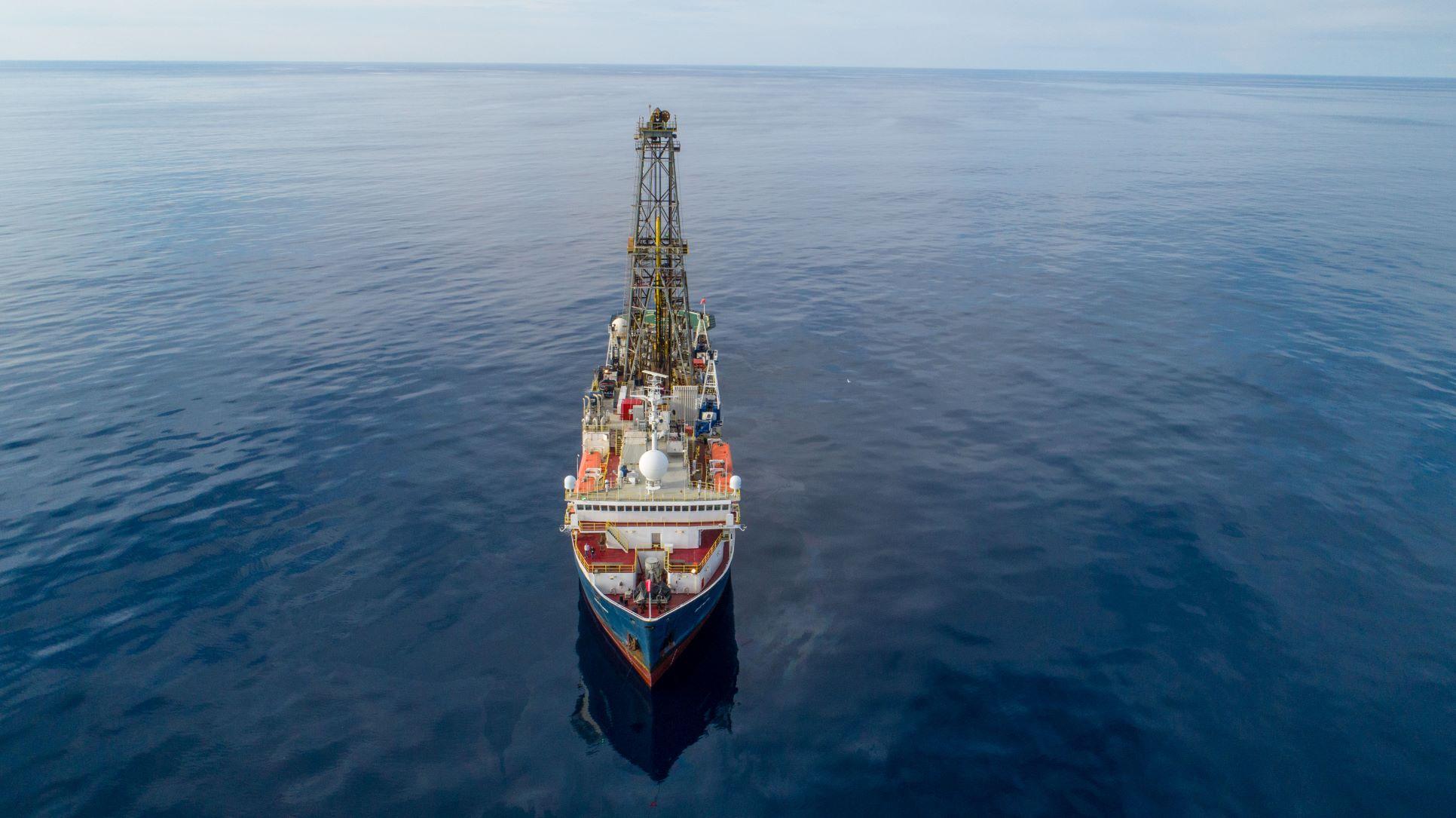
Submitted by Dr C.M. Martin-Jones on Tue, 11/10/2022 - 10:53
International Ocean Discovery Program (IODP) Iberian Margin Paleoclimate Expedition 397 sets sail today for the coast of Portugal, southwest of Lisbon. The expedition, carrying 26 international scientists, will investigate areas where marine sediments accumulate rapidly, giving a high-fidelity record of climate change, on timescales of hundreds to thousands of years, extending back to 3 – 6 million years ago.
Led by Co-Chief scientists Fátima Abrantes (Portuguese Institute for the Sea and Atmosphere, Portugal) and David Hodell (Department of Earth Sciences, University of Cambridge, UK), the scientists will core at four primary drill sites, located in water depths ranging from 1,300 – 4,700 m. They will sample sediments to a depth of up to 500m below the seafloor, investigating a geologic history extending as far back as 6 million years ago.
Dr Abrantes said “It is beautiful to have the chance to realize, before retirement, a dream that started in the early years of my career. I am convinced that this Expedition will be an important one for future Paleo studies, and I look forward to being on JR again.”
The overall objective of the campaign is to recover a 6 million-year-long sediment archive from a range of water depths to document past changes in vertical water mass structure and its relation to global climate change.
Professor Hodell said “The effort to drill the Iberian Margin was initiated in 2009 when Fátima Abrantes and I organized a workshop in Lisbon, Portugal. My hope is that the sediment cores recovered will become the marine type sections [the standard against which other examples are compared] of Millennial-Scale Climate Variability and will provide the raw material needed for present and future earth scientists to study past climate for decades to come.”
Most sediments in the deep sea accumulate at relatively slow rates (1 to 2 cm every thousand years). Sediments on the Iberian margin are deposited at nearly ten times this rate (10 to 20 cm every thousand years), permitting climate changes to be detected with a much greater time resolution than is normally possible. Another advantage of the Iberian margin sediment record is the fact that, in a single archive, it contains signals of marine, atmospheric (ice core), and terrestrial (such as pollen and organic biomarkers) changes. It is therefore possible to investigate the relative timing of changes in variables within the ocean-climate system in the same core. These sediments offer scientists the greatest opportunity to reconstruct high-resolution climate signals in the north Atlantic prior to the effects of human activity.
The project aims to link climate signals from the Iberian margin to polar ice cores from both hemispheres, providing a link between oceanic and atmospheric change including the concentration of greenhouse gases. Recovering sedimentary core samples at different water depths (approx. 1300 to 4700 m below sea level) will permit scientists to study how deep-ocean circulation and chemistry changed in the past, including its role in deep-sea carbon storage and atmospheric CO2 changes. The cores will shed new light on the growth and decay of large ice sheets for the last 3 million years and also provide a glimpse into a warmer world before this time when atmospheric CO2 was similar to today.
The importance of sediments from the Iberian Margin was highlighted by the late Professor Nick Shackleton and Dr Luke Skinner, whose seminal work revealed that proxy indicators of ocean temperatures contained within the marine record of the Iberian Margin mirrored those of the polar ice cores. Since then, those marine sediments have played a pivotal role in palaeoclimate research. Because sediment is rapidly delivered from land to the Portuguese continental shelf, it allows scientists to link oceanographic changes to the terrestrial climate of Europe as well as the poles.
More information:
About the expedition - IODP JRSO • Expeditions • Iberian Margin Paleoclimate (tamu.edu)
About the research program - www.iodp.org

